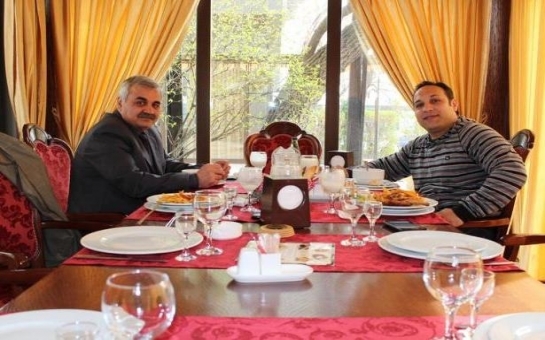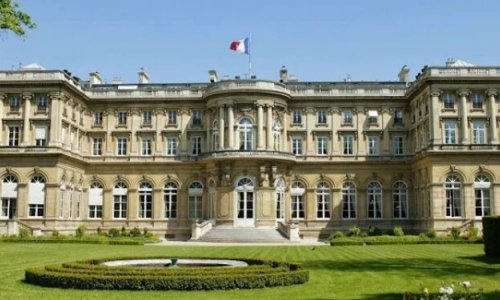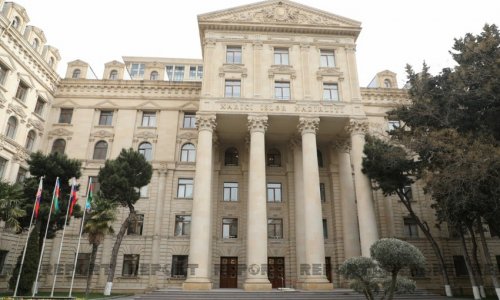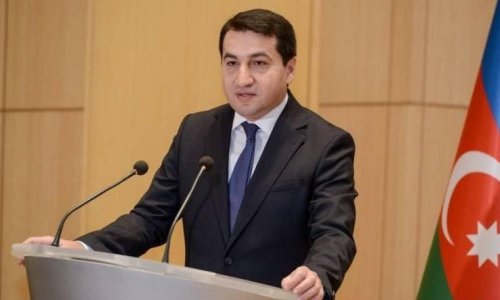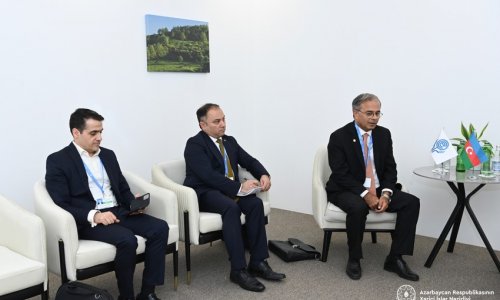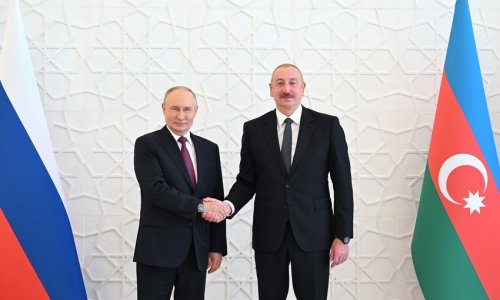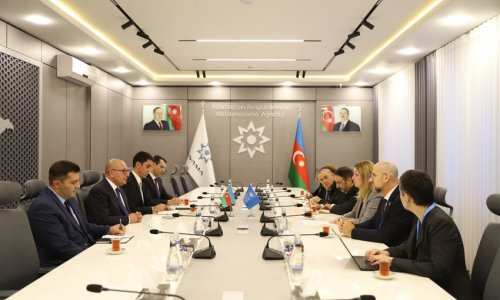by Kamal Ali
The British Broadcasting Corporation (BBC) has posted a video of Cavid Orucov, an Azerbaijani national who has fled to Armenia together with his family. Orucov, along with his wife and three children, traveled to Yerevan in February through the Georgian-Armenian border.
The fact that an Azerbaijani family fled to the hostile country was no surprising. What surprised us most was the way BBC told the story in violation of all its principles.
Without providing any background information, BBC aired Cavid’s speech only. The man said he and his family freely stroll along the streets of Yerevan and no one touches them. Orucov said he was only afraid of Azerbaijani saboteurs that could harm them and is concerned about the fate of his relatives - parents and a brother – he left back at home.
On the very first week of the Orucovs’ arrival in Yerevan, Voskanapat.am, an extremely dirty website even by Armenian standards, sought to use this for propaganda purposes against Azerbaijan. Levon Melik-Shahnazaryan, a leading writer for the website, claimed that the Orucovs fled to Armenia to escape from persecution by the Azerbaijani authorities.
“Armenia is a fortress where the barking of an Azerbaijani dog sounds no frightening than the purring of a well-groomed and lazy house cat,” he wrote.
But Orucov himself denied this lie in his interview with BBC. Speaking to the camera, Orucov said he was planning to return to Baku, leaving his family in Yerevan.
The BBC report reveal what the Azerbaijani family had to endure in Armenia. But it only does so when you add background information, explaining why the Orucov family had to travel to Armenia.
It transpires that, after living in Russia for many years, the Orucov family first sought refuge in Norway. The BBC report says nothing about that. Cavid claimed that his family couldn’t live in Azerbaijan because his wife was half-Armenian. The Norwegian authorities, however, rejected that argument on the grounds that thousands of ethnic Armenians are living in Azerbaijan without any problems. What’s more, Cavid’s wife is an Azeri by passport. One of her grandfathers was Armenian. Again, there is no word on that in the BBC report either.
Having returned to Baku from Norway, the Orucov family made up another argument they later tried to sell to the Armenian authorities: Cavid claimed that he was forced by Azerbaijani intelligence to gather secret information about Armenia. This claim was so groundless that it was rejected by Armenian “political analyst” Melik-Shahnazaryan too.
In other words, Cavid decided to seek refuge in Europe through Armenia, which would strengthen his argument that there was no way he could return to Azerbaijan. Yet, in his interview with the BBC, Cavid says he plans to return to Baku, leaving his wife and three children in Yerevan.
Why did he not want to stay in Yerevan? At the end of the day, no one touches him in Armenia, as he claims, and the weather is nice?
But it is evident from the BBC report that life is not that easy for the family in Yerevan. The family of five is living on the money it brought from Azerbaijan and the Armenian government has no intention of feeding their small children.
This is while a large Armenian family that fled to Baku a few years ago was fully supported by the Azerbaijani government for months before being transferred to a third country.
According to Cavid’s mother, Mirvari Orucova, he didn’t want to work to support his family and often asked his parents for money. Having failed in his bid for refuge in Norway, Cavid asked the German and Israeli embassies for permit to work and reside but was rejected again.
He is the kind of person who prefers an easy life in a Western country on a refugee allowance. He has no desire to work and support his family.
The BBC report did not have these details.
Editor’s note:
Aleksey Manvelyan, who works for the Azerbaijani service of BBC World, says he met Cavid Orucov in the street by chance. This account seems quite primitive. Just imagine: Aleksey Manvelyan was walking in the street when he met Cavid Orucov.
Manvelyan happened to have his video camera with him by chance. And it was also by chance that Orucov had already given an interview to a website that is being used by the Armenian government as a propaganda tool. That means it was not an exclusive interview to BBC and the courageous Orucov had already posed to Armenian TV cameras in Yerevan’s streets.
How come Azerbaijanis working for BBC allowed the Armenian propaganda machine to treat them like children? Veteran journalists in Azerbaijan may remember an incident that occurred between BBC and ANS TV ten years ago. ANS, which used to re-broadcast an hour-long news program of the Azerbaijani service of BBC World Service, stopped airing the program in protest against biased reporting about Nagorno-Karabakh by BBC’s Mark Grigoryan, an ethnic Armenian.
Ten years on, as the 20th anniversary of the Armenian-Azerbaijani ceasefire nears, BBC decided to step on the same rake.
But things have changed a lot in the past ten years. The state of Azerbaijani media is now a far cry from what it was a decade ago. Therefore, we would advise the current Azerbaijani team at the BBC to get an interview with a relative of one of their colleagues who was detained while trying to enter the UK with a fake Polish passport. Show us how professionals you are. Tell us what made that defector to disguise as a Polish? Ladies and gentlemen working for BBC Azerbaijan, where are your BBC standards, where is your patriotism?
ANN.Az

